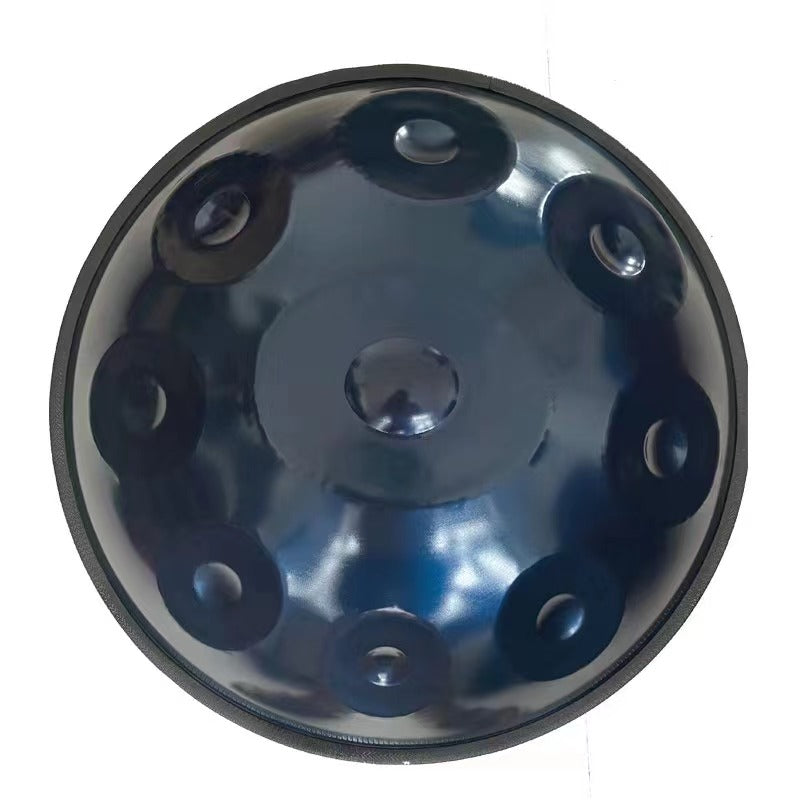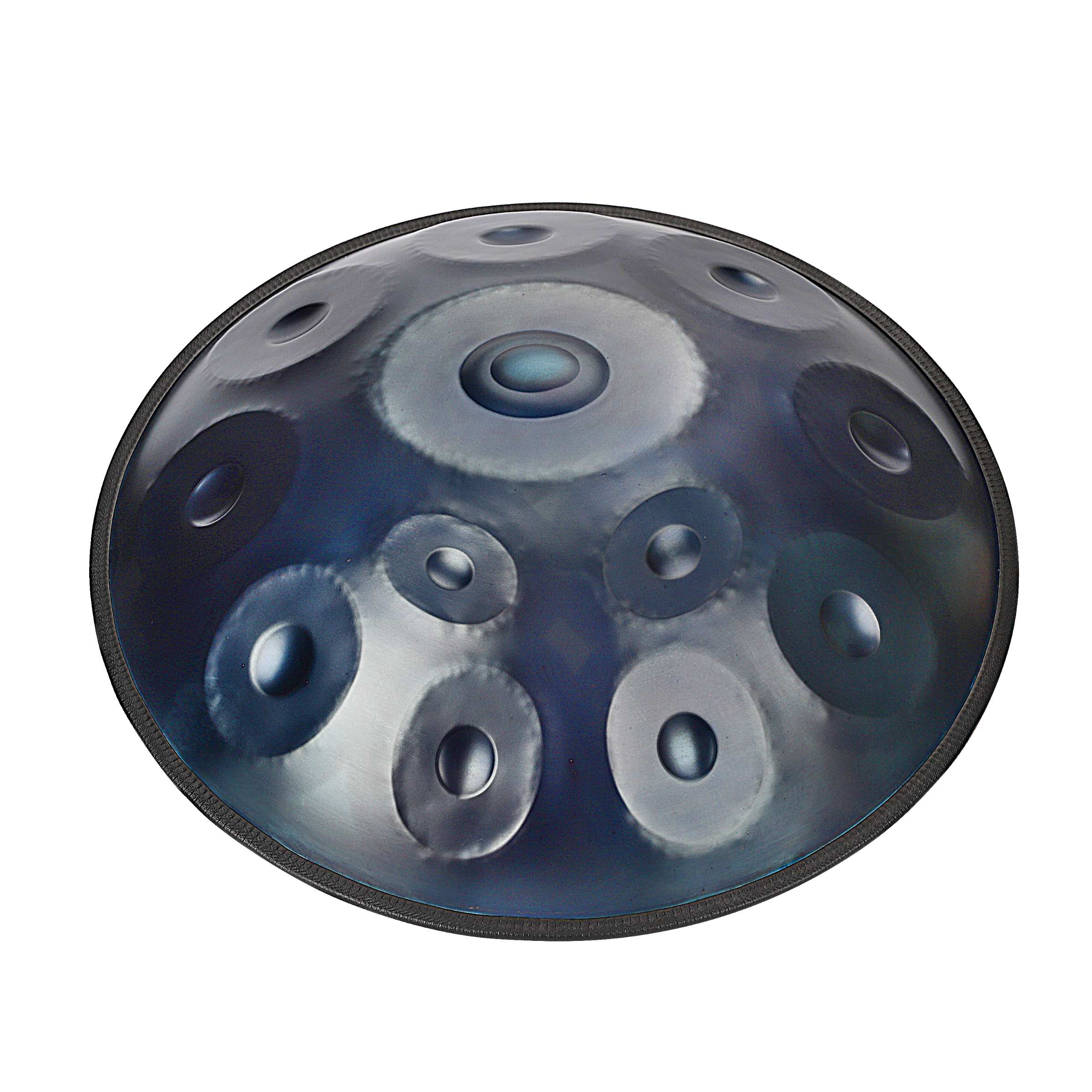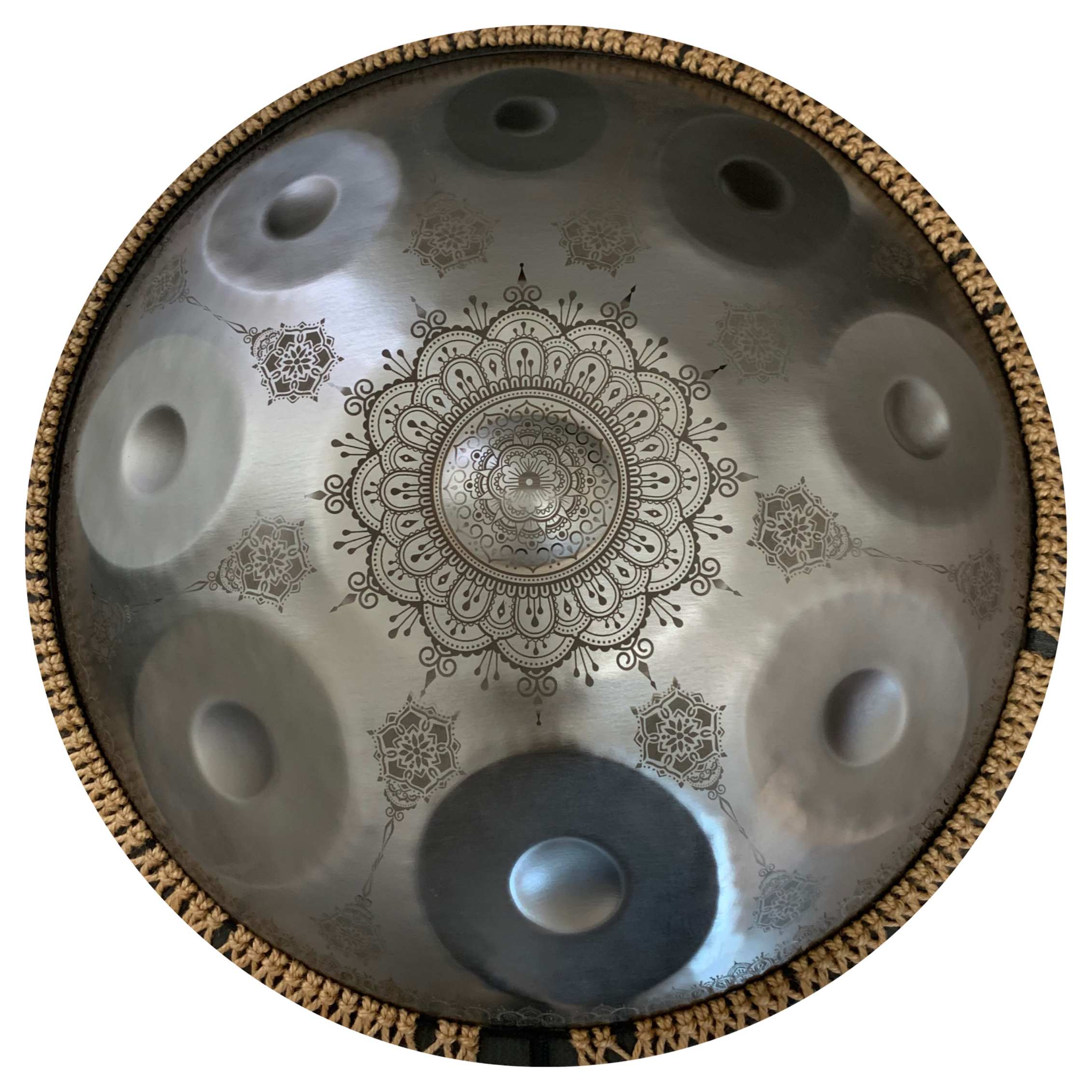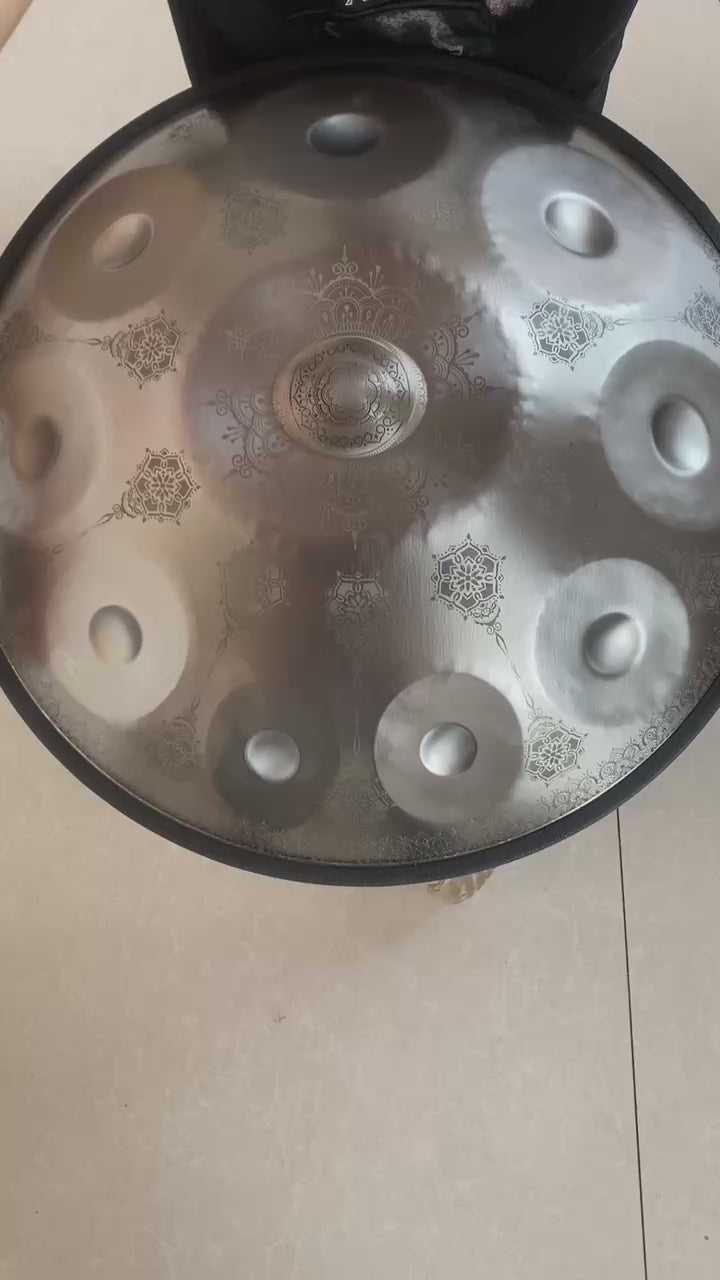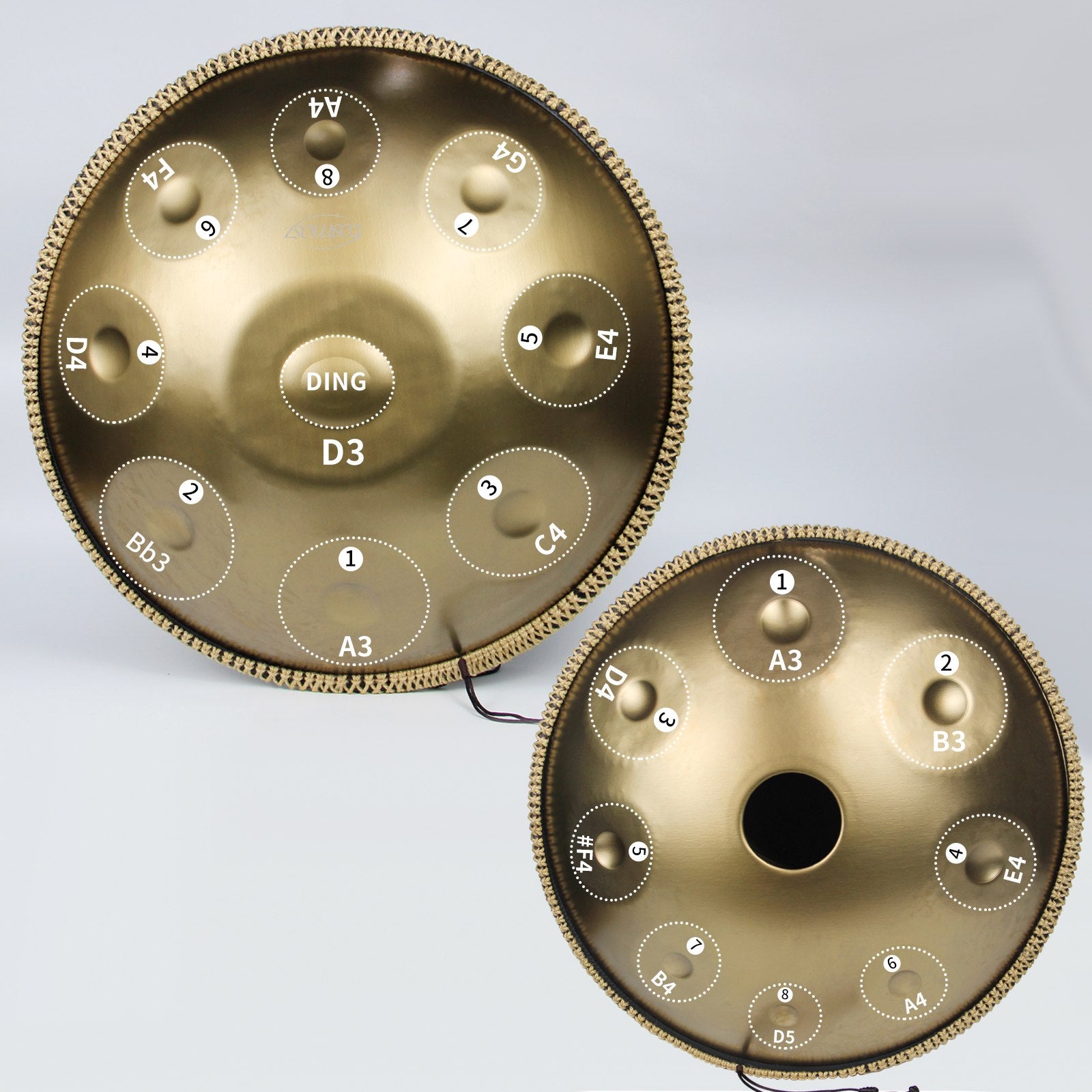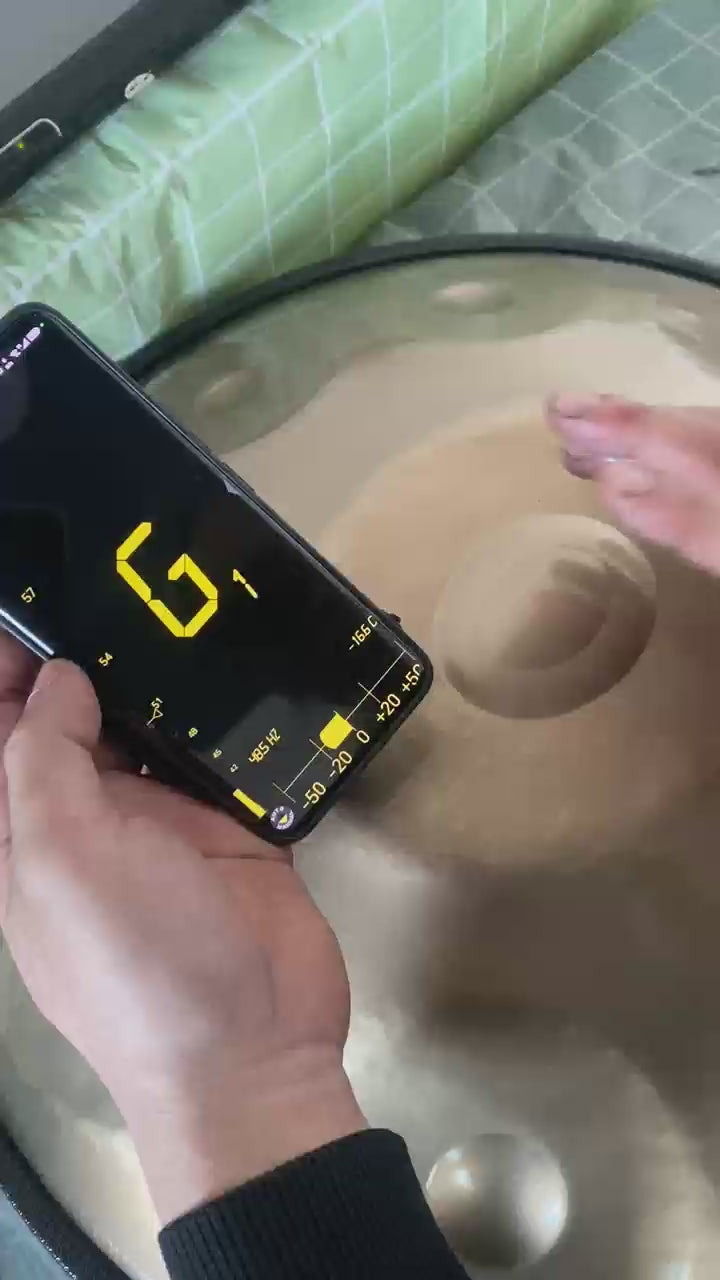I'd be happy to offer some advice on learning to play the handpan as a beginner.
Start by learning the basics: Before you can play complex rhythms or melodies, you need to become familiar with the layout and playing technique of the handpan. Spend some time experimenting with different hand positions and striking techniques to get a feel for how the instrument responds.
Practice regularly: Consistent practice is key to developing your skills as a handpan player. Try to set aside a regular time each day or week to practice and focus on improving your technique and developing your musical ear.
Listen to other handpan players: One of the best ways to improve your playing is by listening to other handpan players and studying their techniques. Look for instructional videos or recordings of live performances to gain inspiration and insight into the art of handpan playing.
Experiment with different playing styles: Handpan playing can be quite versatile, with a wide range of playing styles and techniques to choose from. Experiment with different playing styles, such as finger drumming, thumb rolls, and double-hand techniques, to find the style that works best for you.
Join a community of handpan players: Joining a community of handpan players can be a great way to connect with other musicians and learn from more experienced players. Look for local meetups or online communities to connect with other handpan enthusiasts and gain valuable insights into the world of handpan playing.
Overall, learning to play the handpan requires patience, dedication, and a willingness to experiment and learn from others. With consistent practice and a passion for the instrument, you can develop the skills and techniques needed to become a skilled handpan player over time.
Start with simple melodies and rhythms: When you're first starting out, it can be tempting to try to play complex pieces right away. However, it's important to start with simple melodies and rhythms to build a strong foundation of technique and musical understanding.
Use a metronome: A metronome is a great tool for practicing your timing and keeping your playing consistent. Start with a slow tempo and gradually increase the speed as you become more comfortable with the rhythms and techniques.
Record yourself playing: Recording yourself playing the handpan can be a helpful way to identify areas for improvement and track your progress over time. Listen back to your recordings and analyze your playing to identify areas where you can improve.


